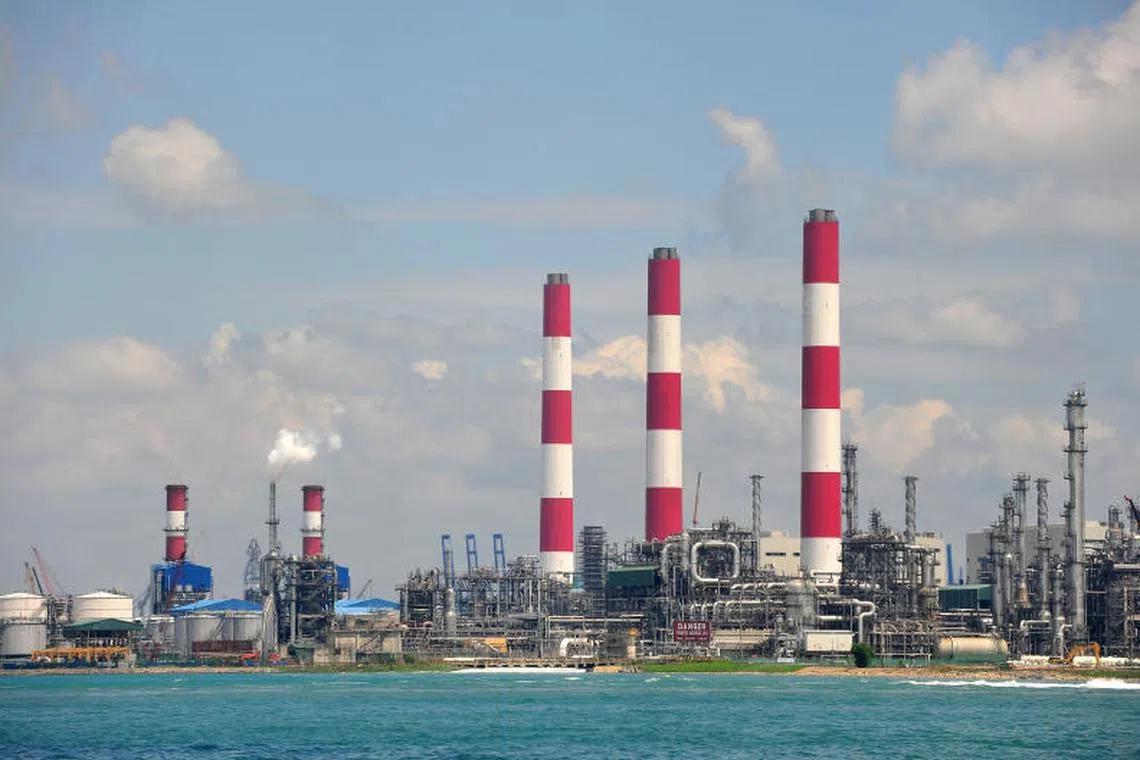S’pore to peak carbon emissions between 2025 and 2028 at around 65 million tonnes
Sign up now: Get ST's newsletters delivered to your inbox

The stronger 2030 target precedes a previous goal to peak emissions at 65 million tonnes by 2030.
ST PHOTO: ALPHONSUS CHERN
SINGAPORE - The Republic will peak its greenhouse gas emissions between 2025 and 2028 at around 65 million tonnes, before dipping to about 60 million tonnes in 2030, Minister for Sustainability and the Environment Grace Fu told Parliament on Tuesday.
In October, it was announced that the nation’s greenhouse gas emissions would reach about 60 million tonnes in 2030
On Tuesday, Ms Fu told the House that it is premature to announce a precise year in which emissions would peak, because peaking emissions would need substantial transformations across industries, the economy and society. She added that peaking emissions between 2025 and 2028 is the Government’s best estimate.
“Unlike countries that have access to abundant abatement resources domestically, Singapore has to rely on external measures such as electricity imports and carbon capture, utilisation and storage,” she said, adding that negotiations with foreign partners on several arrangements are still ongoing.
The stronger 2030 target precedes a previous goal to peak emissions at 65 million tonnes by 2030.
This means that Singapore’s emissions will grow to around 65 million tonnes between 2025 and 2028, before starting to fall towards the end of this decade to reach net zero by 2050.
Ms Fu was responding to questions from Workers’ Party MP He Ting Ru (Sengkang GRC) and Nominated MP Koh Lian Pin on when Singapore is expected to peak emissions, and whether the peak is expected to be at 65 million tonnes.
The 2030 targets form a key part of Singapore’s recently submitted second update to its nationally determined contribution (NDC) to the United Nations’ Paris climate agreement. NDCs are submitted by countries to outline how they will reduce their greenhouse gas emissions to reach net-zero goals.
Ms Fu added that setting a five million tonne reduction in its 2030 emissions target is substantial as it is more than the total emissions from households today.
“Notwithstanding these uncertainties, we remain committed to achieving what we set out in the second update to our 2030 NDC,” she said.
Professor Koh also asked how many responses from the public were received from September’s public consultations on Singapore’s raised climate ambitions, and whether the industry’s and public’s views gathered will be shared publicly.
Ms Fu said the public consultations in September were part of a series of engagements that the Government has carried out since April, as part of the Singapore Green Plan 2030.
On Oct 25, the National Climate Change Secretariat published the summary of feedback from these stakeholders, as well as more detailed feedback from the public consultation on its website.



